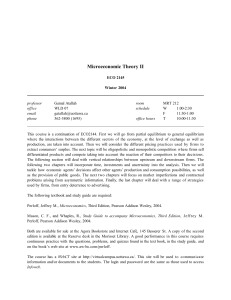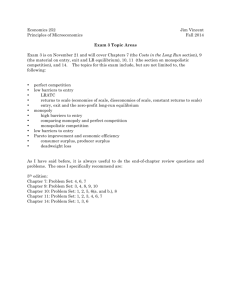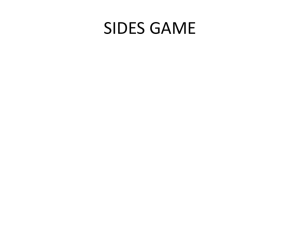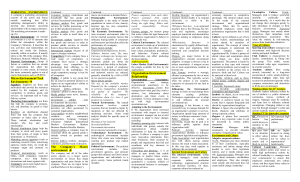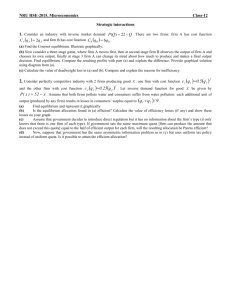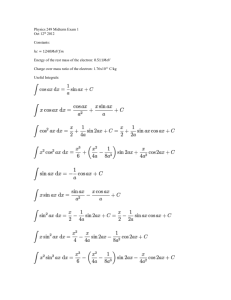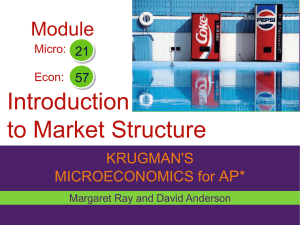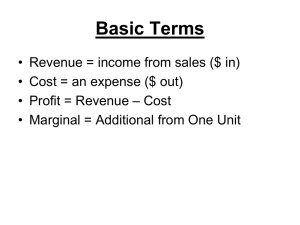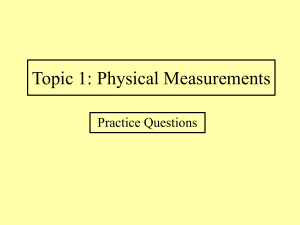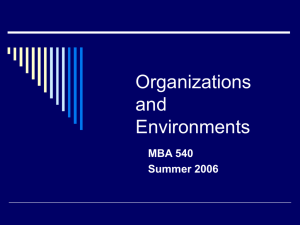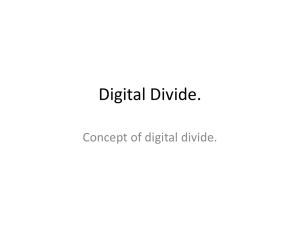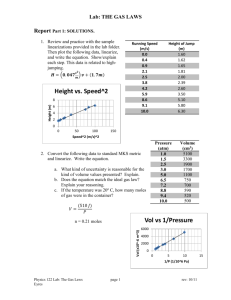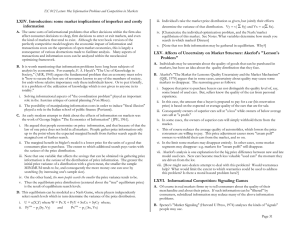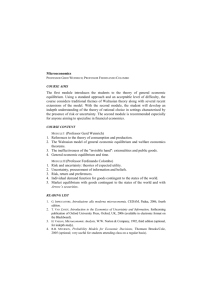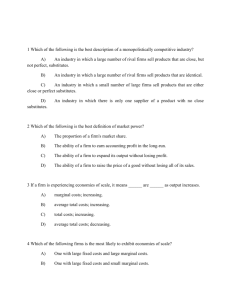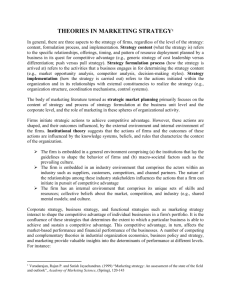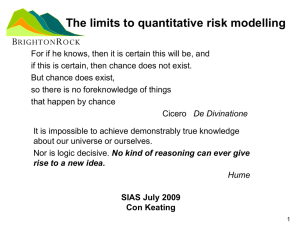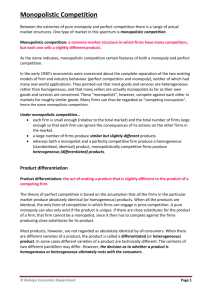Variability of economy, uncertainty, and market imperfection
advertisement
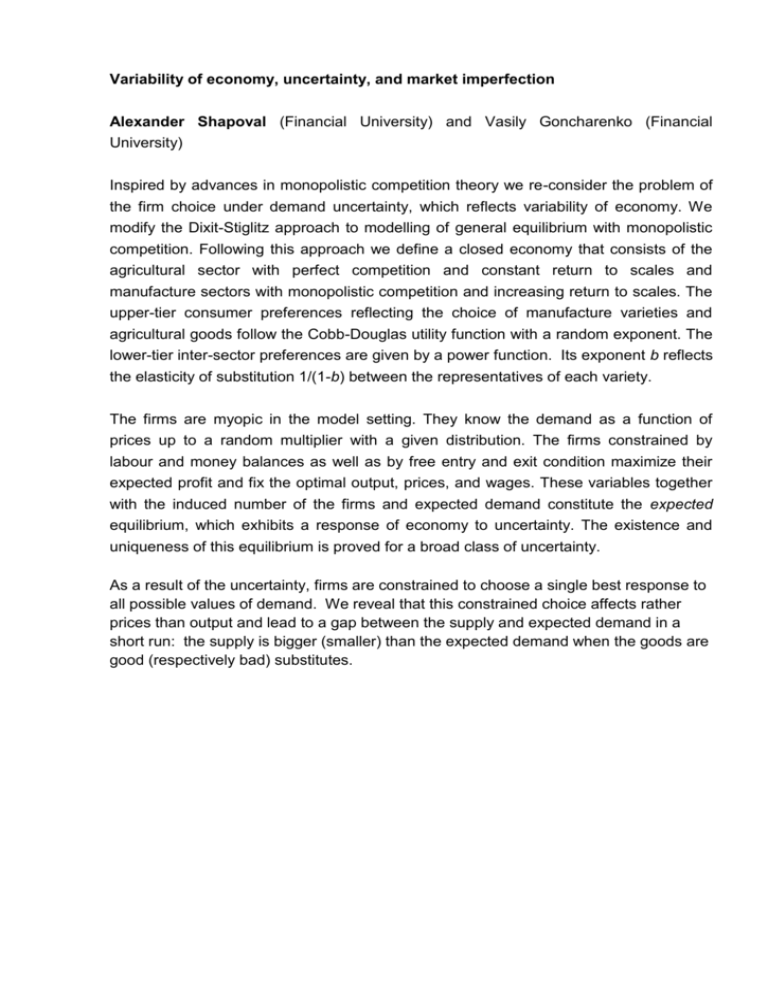
Variability of economy, uncertainty, and market imperfection Alexander Shapoval (Financial University) and Vasily Goncharenko (Financial University) Inspired by advances in monopolistic competition theory we re-consider the problem of the firm choice under demand uncertainty, which reflects variability of economy. We modify the Dixit-Stiglitz approach to modelling of general equilibrium with monopolistic competition. Following this approach we define a closed economy that consists of the agricultural sector with perfect competition and constant return to scales and manufacture sectors with monopolistic competition and increasing return to scales. The upper-tier consumer preferences reflecting the choice of manufacture varieties and agricultural goods follow the Cobb-Douglas utility function with a random exponent. The lower-tier inter-sector preferences are given by a power function. Its exponent b reflects the elasticity of substitution 1/(1-b) between the representatives of each variety. The firms are myopic in the model setting. They know the demand as a function of prices up to a random multiplier with a given distribution. The firms constrained by labour and money balances as well as by free entry and exit condition maximize their expected profit and fix the optimal output, prices, and wages. These variables together with the induced number of the firms and expected demand constitute the expected equilibrium, which exhibits a response of economy to uncertainty. The existence and uniqueness of this equilibrium is proved for a broad class of uncertainty. As a result of the uncertainty, firms are constrained to choose a single best response to all possible values of demand. We reveal that this constrained choice affects rather prices than output and lead to a gap between the supply and expected demand in a short run: the supply is bigger (smaller) than the expected demand when the goods are good (respectively bad) substitutes.
